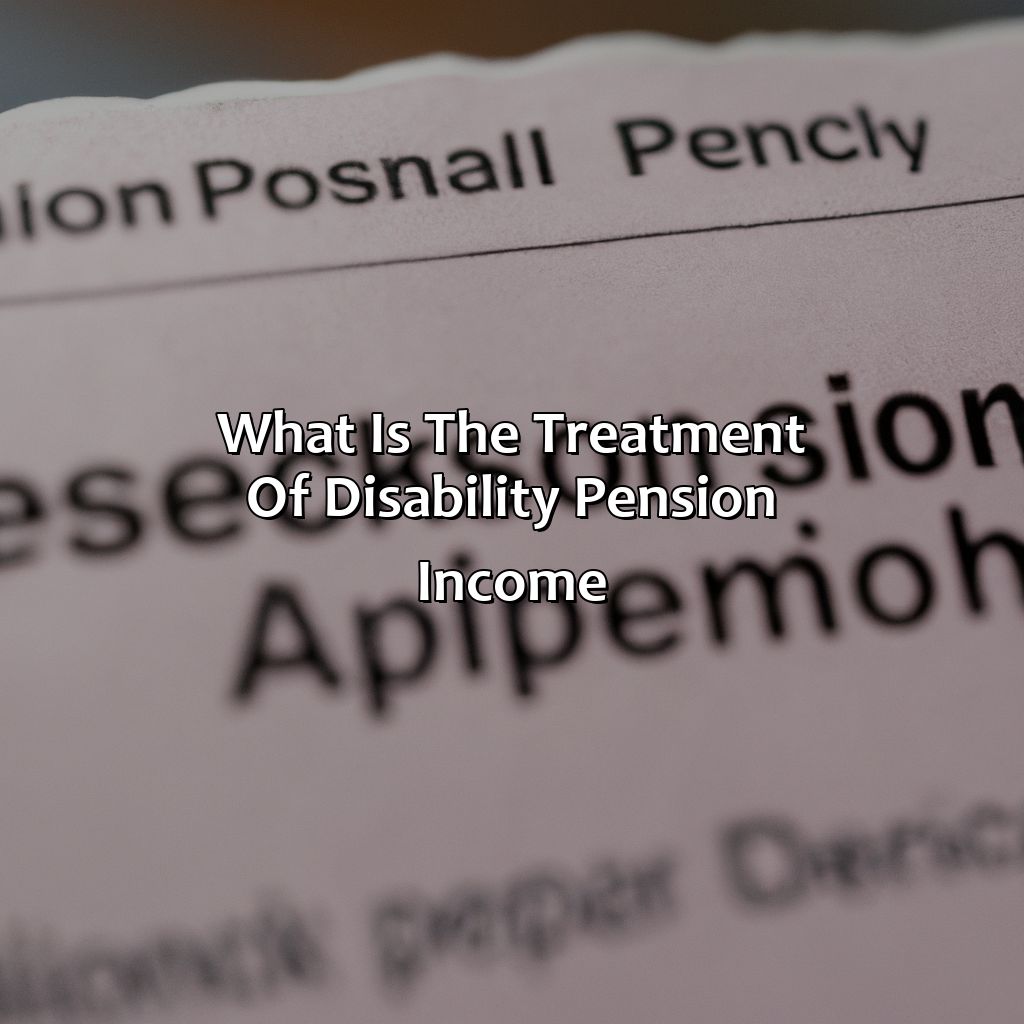What Is The Treatment Of Disability Pension Income?
Key Takeaway:
- Disability pension income is a type of benefit paid to individuals who are unable to work due to a disability. It provides financial assistance to help cover the costs of living expenses, medical care or other needs.
- The tax treatment of disability pension income depends on whether it is taxable or nontaxable. The taxable portion of the income is subject to federal and state income taxes, while the nontaxable portion is not.
- Reporting disability pension income on tax returns requires the use of Form 1099-R and Form 1040. Special circumstances, such as Social Security Disability Insurance (SSDI) benefits, veterans disability benefits, and workers’ compensation benefits, may affect the tax treatment of disability pension income.
Are you struggling to understand the tax treatment of disability pension income? This article provides important information to help you understand the tax rules surrounding disability pensions and how they may affect you. With this knowledge, you can make informed decisions for your financial future.
What is Disability Pension Income?
At the heart of the social security system in many countries is disability pension income. This is an income source that helps individuals who are unable to work due to a disability. Disability pension income is designed to provide financial support to those who are unable to work and need assistance to meet their daily expenses. It is typically awarded to individuals who have worked and paid into the social security system or have a disability that qualifies them for this benefit. Additionally, disability pension income is often subject to tax.
When receiving disability pension income, it is important to understand the treatment of this income for tax purposes. In many cases, disability pension income is treated as taxable income. This means that it must be reported on tax returns and subject to income tax. However, in some instances, disability pension income may be exempt from taxation. This depends on several factors, including the individual’s age, their total income, and the nature of their disability. Additionally, individuals may be eligible for other tax benefits, such as deductions for medical expenses or other disability-related expenses.
It is important to note that the rules governing disability pension income and tax treatment can be complex. It is recommended that individuals seek the guidance of a qualified tax professional to ensure that they are compliant with all relevant tax laws and regulations. By doing so, individuals can avoid potential penalties and maximize their tax savings.
Understanding the treatment of disability pension income can be a key factor in ensuring financial stability and peace of mind for individuals with disabilities. Taking the necessary steps to properly report and manage disability pension income can help individuals avoid tax issues and take advantage of available tax benefits.
If you are receiving disability pension income, it is important to take action now to understand its tax treatment. Don’t risk missing out on valuable tax savings or facing penalties for non-compliance. By consulting with a tax professional, you can ensure that you are in compliance with all relevant tax laws and regulations and maximize your financial well-being.
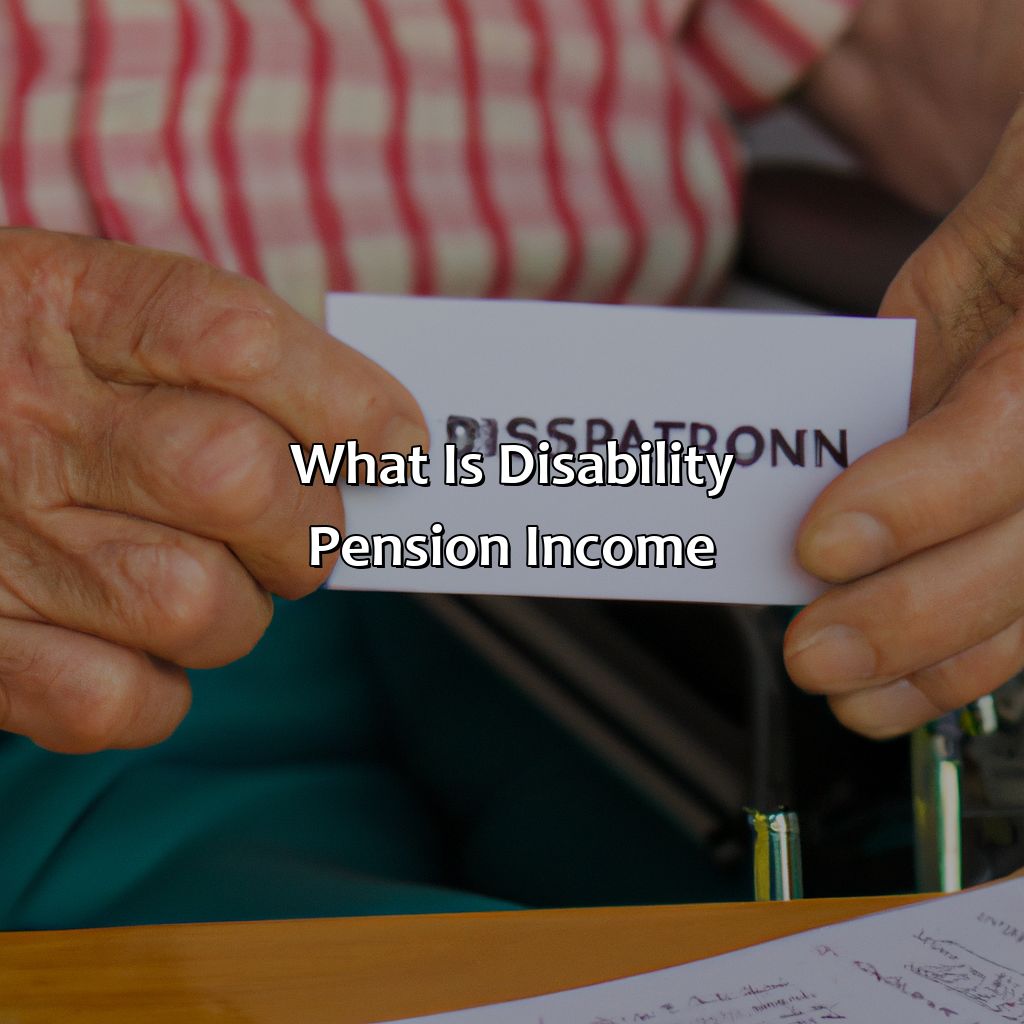
Image credits: retiregenz.com by David Woodhock
Tax Treatment of Disability Pension Income
Disability pension income is subject to specific tax treatment, in accordance with the applicable laws and regulations. Such income may be partially or fully exempt from taxation, based on various factors, such as the nature of the disability, the source of the pension, and the recipient’s age. Furthermore, the tax treatment of disability pension income may vary between different jurisdictions, and may be influenced by other factors such as the recipient’s employment status and income level.
In general, disability pension income that is received from a government source is more likely to be exempt from taxation than income received from a private source. Additionally, the age of the recipient may affect the amount of the exemption, as older individuals may receive a larger exemption than younger individuals. It is important for recipients of disability pension income to consult with a tax professional to ensure that they are aware of all relevant tax considerations.
One example of a person who has experienced the tax treatment of disability pension income is John, a retired veteran who receives disability pension income from the government. He was pleasantly surprised to learn that his income was largely exempt from taxation, which allowed him to maintain his standard of living despite his reduced earning capacity. Without this exemption, John would have had to pay a significant portion of his income to taxes, which would have affected his ability to cover his expenses. The tax treatment of disability pension income can thus have a significant impact on individuals’ financial well-being, and it is important to understand the relevant laws and regulations in order to make informed decisions.
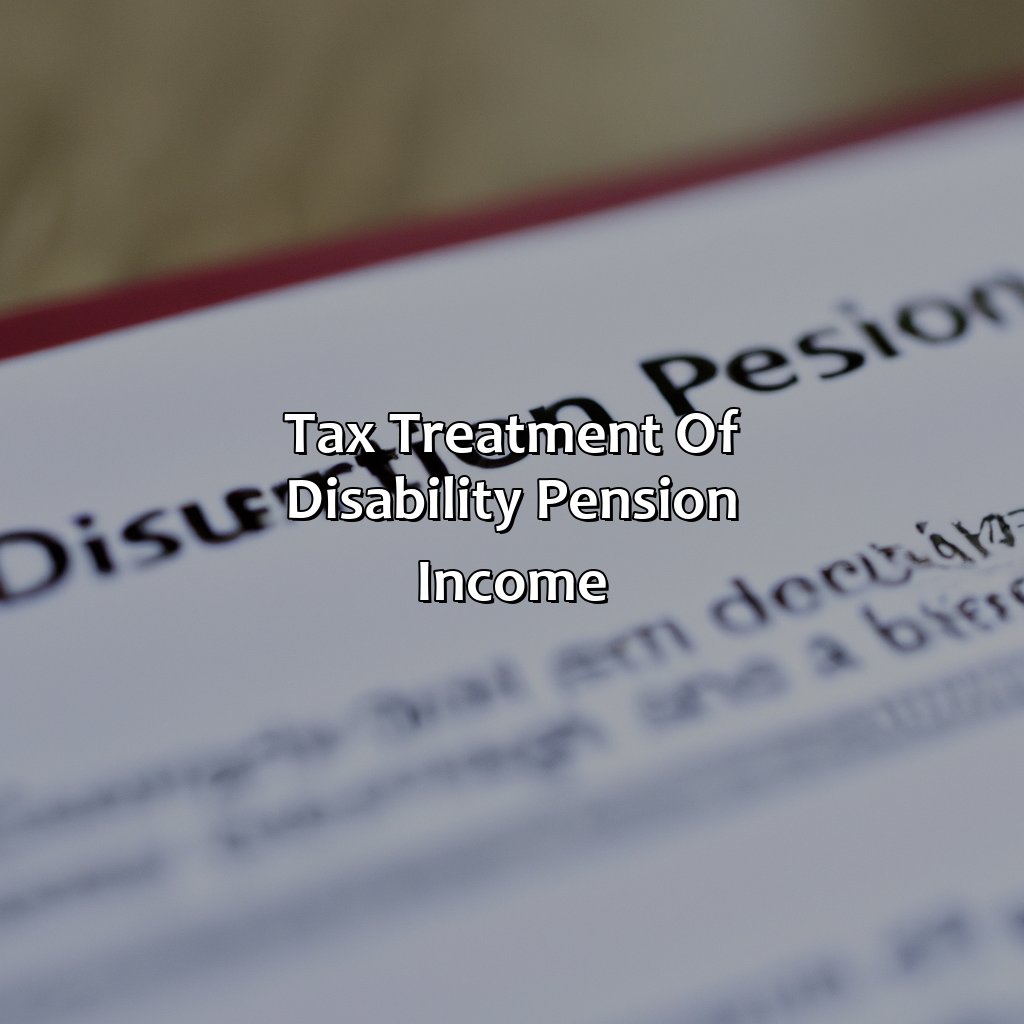
Image credits: retiregenz.com by James Woodhock
Reporting Disability Pension Income on Tax Returns
When it comes to filing taxes, individuals may have to report their disability pension income. This type of income is generally taxable and must be correctly reported on tax returns. It is important to understand the various rules and regulations surrounding disability pension income to avoid any penalties or complications.
One way to correctly report disability pension income on tax returns is to accurately determine the taxable amount. This involves subtracting any non-taxable portion from the total pension income. It is also important to note that disability pension income may be subject to federal income tax, state income tax, or both.
While reporting disability pension income, individuals may also be eligible for certain tax credits and deductions. For example, they may be able to claim the earned income tax credit or deduct medical expenses that exceed a certain percentage of their adjusted gross income.
It is essential to keep accurate and complete records of all disability pension income and related tax documents. These records may be required if there is an audit or if an error is later discovered.
A true story that illustrates the importance of accurately reporting disability pension income involves a retiree who failed to report his full pension income on his tax returns. After being audited by the IRS, he was faced with back taxes, penalties, and interest, leading to significant financial hardship. By properly reporting disability pension income, individuals can avoid such situations and ensure compliance with tax laws.
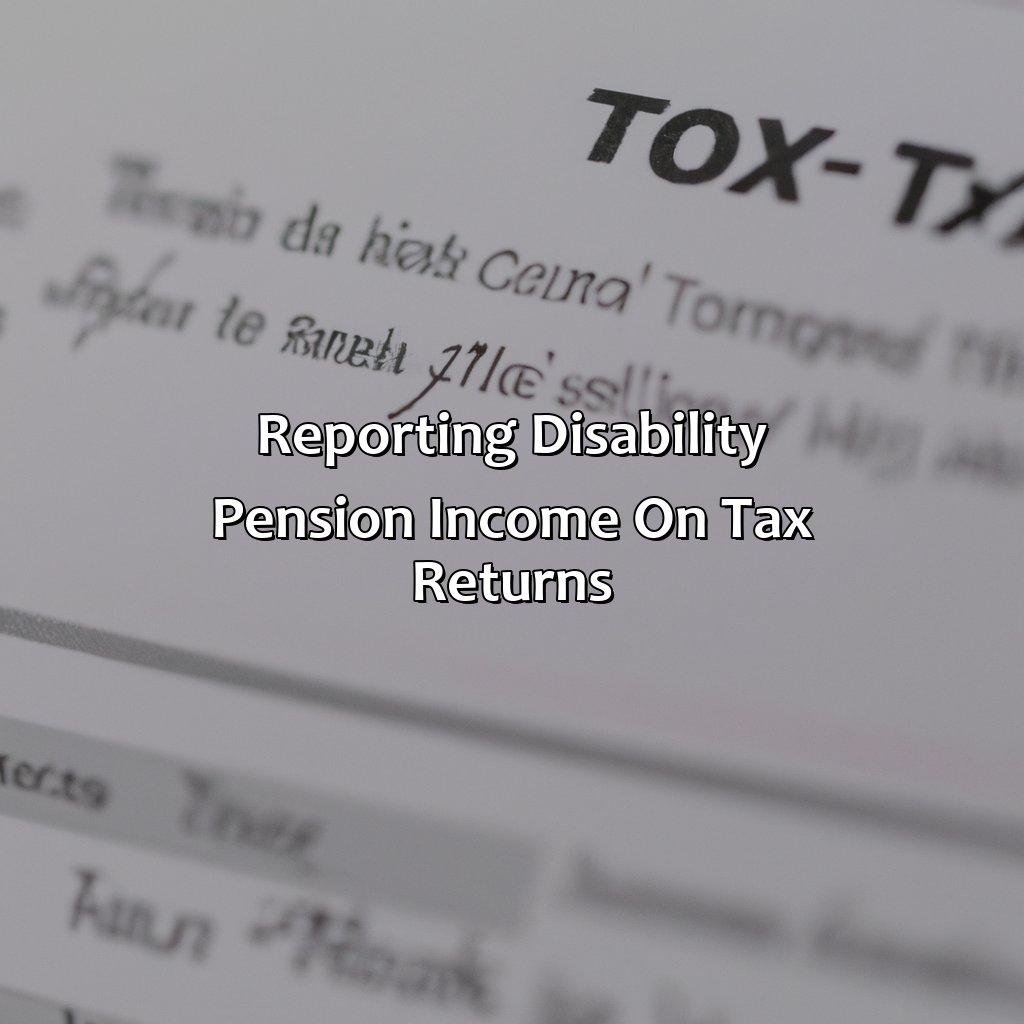
Image credits: retiregenz.com by Joel Arnold
Special Circumstances
Exceptional Situations: Disability pension income has specific rules and requirements that individuals should be aware of. These guidelines are applicable in particular situations when an individual receives disability payments.
When people file for disability pension benefits, they need to disclose their income sources. The amount and source of disability payments can also have an impact on other benefit entitlements. Under certain conditions, it may change the amount of benefits received from other sources such as Social Security retirement benefits or spousal entitlements. Therefore, people need to understand the special circumstances and the rules surrounding disability pension income.
Additional Facts: Other factors can affect disability pension income, such as workers’ compensation. Depending on the case, workman’s compensation may reduce the amount of disability pension benefits. It is essential for individuals to review their disability benefits plan and regulations to avoid any errors in claiming and receiving their benefits.
Real-Life Incident: In California, a woman received disability pension benefits and did not report income earned from a new job. The Social Security Administration found out and demanded her to pay back benefits as a penalty. This event demonstrates the importance of understanding the rules and special circumstances surrounding disability pension income. It is crucial to report all sources of income to avoid any conflicts with the Social Security Administration.
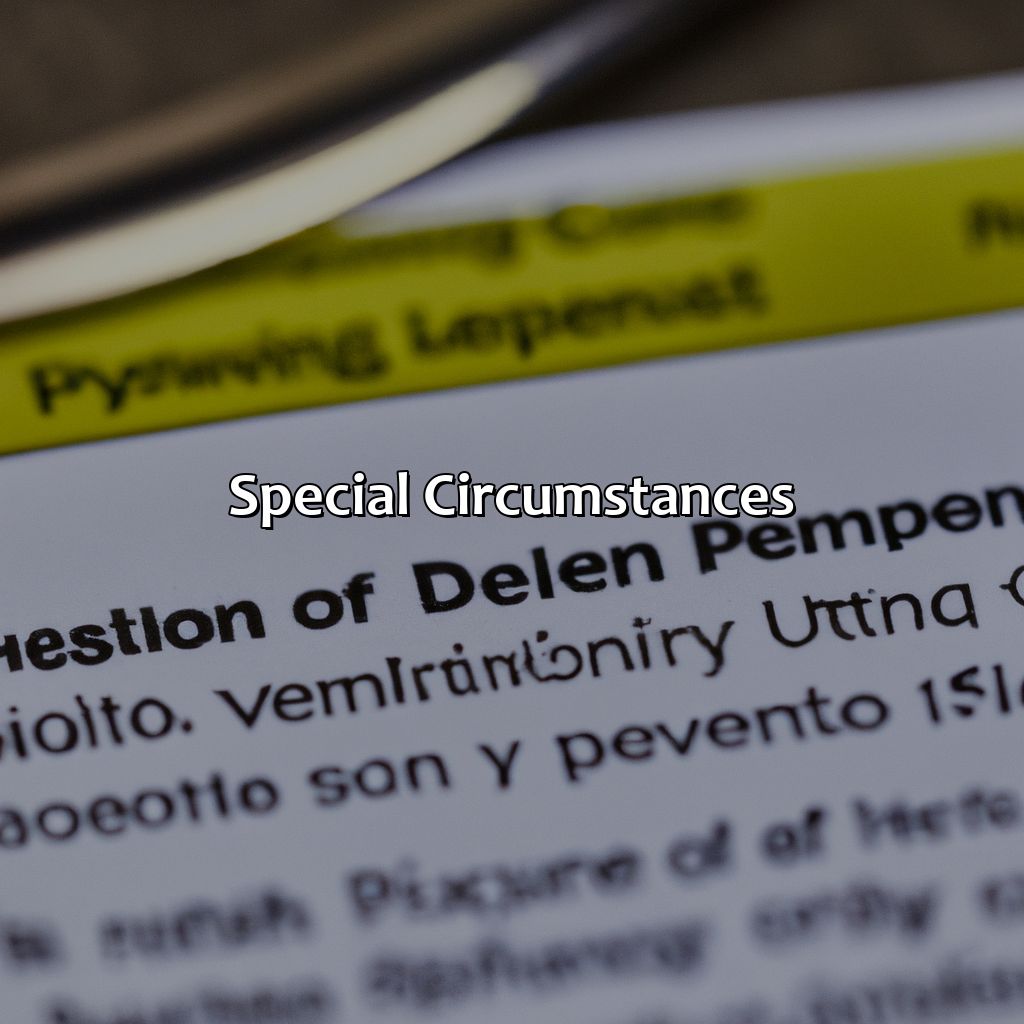
Image credits: retiregenz.com by David Washington
Some Facts About The Treatment of Disability Pension Income:
- ✅ Disability pension income is taxable. (Source: Internal Revenue Service)
- ✅ However, not all disability pension income is subject to taxation, depending on the source of the disability payment. (Source: TurboTax)
- ✅ Disability pension income can be received from various sources, such as employer-sponsored plans, government programs, and private insurance companies. (Source: Investopedia)
- ✅ To determine the taxability of disability pension income, taxpayers should refer to their individual tax situation and consult with a tax professional. (Source: The Balance)
- ✅ Claiming disability pension income may affect other tax benefits, such as the Earned Income Tax Credit and the Child Tax Credit. (Source: IRS)
FAQs about What Is The Treatment Of Disability Pension Income?
What is the treatment of disability pension income?
Disability pension income is treated as taxable income and is subject to federal income tax, depending on the type of disability pension received.
What is the difference between disability pension income and disability insurance benefits?
Disability pension income is generally provided to military veterans or government employees who have become disabled as a result of their service or occupation. Disability insurance benefits, on the other hand, are typically purchased through a private insurance provider to replace lost income due to a disabling condition.
Is disability pension income subject to state income tax?
The treatment of disability pension income varies by state. Some states exempt disability pension income from state income tax, while others do not. It is important to check with your state tax agency to determine the specific tax treatment in your state.
Can disability pension income be garnished to pay debts?
Disability pension income is generally protected from garnishment by federal law. However, there are some exceptions depending on the type of debt owed.
Are there any deductions or credits available for disability pension income?
There may be deductions or credits available to reduce the amount of taxable income on disability pension income. These can include medical expense deductions, charitable contributions, and the earned income tax credit.
What happens if I don’t report my disability pension income on my tax return?
Failing to report disability pension income on a tax return can result in penalties and interest charges from the Internal Revenue Service. It is important to report all sources of income on your tax return to avoid any potential legal issues.
